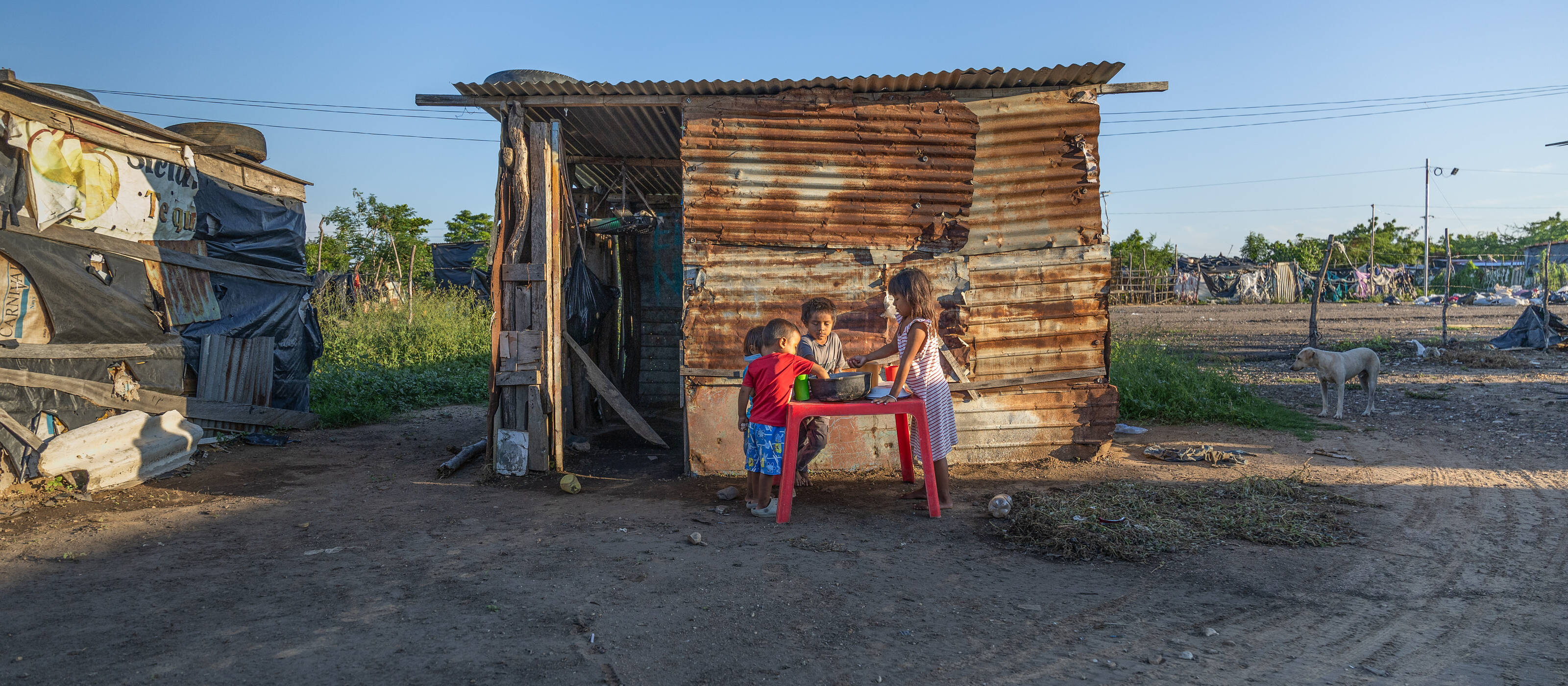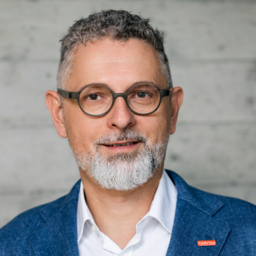

This is no kind of home
Just imagine if every resident of Europe had to survive on less than CHF 1.85 per day. Everyone from the Norwegian city of Tromsø to Heraklion in Greece would be living in ‘extreme poverty’. They would barely be able to cover their basic needs, such as having enough to eat, clean water, education for their children or basic healthcare.
The bitter reality for 700'000'000 people
In the Global South, around 700'000'000 people (that’s eight zeros!) are living in extreme poverty — this roughly equates to the entire population of Europe. These people in the Global South have very little or no income and no fairly paid work. They are unable to send their children to school or go to the doctor when they are ill. They have no financial resources to cope with the consequences of the climate crisis, food shortages or political instability. As crises are increasing and overlapping around the world, this is rendering their living situations even more unstable and strained.

«We should not accept the fact that more than half a billion people worldwide are living in extreme poverty. Governments, business and civil society urgently need to act now.»Peter lackdirector caritas Switzerland
What is Caritas Switzerland doing to combat extreme poverty?
Our goal is to create better living conditions for people in need and reduce global poverty. In order to achieve the biggest impact for the people affected, we focus our work on their needs. We treat them as equals and work with them to develop solutions. Together with well-established local partner organisations, we are committed to our key issues: income and food, climate justice and safer migration.
Global poverty reduction can only work if it is thought about and approached in a holistic way. This means that it needs to consider both disasters that occur suddenly and gradual or forgotten crises and injustices. We therefore combine emergency aid with multi-year development projects wherever and whenever possible, aiming through this work to achieve short- and long-term changes in the lives of particularly poor and disadvantaged people.
Poverty and the 2030 Agenda
Poverty is more than just a lack of money. Poverty forces people to live in inhumane conditions, whether due to material hardships, such as failing harvests, or immaterial obstacles, such as political unrest. Poverty is also:
- losing your livelihood as a result of a disaster
- a lack of income prospects
- having to leave your home due to climate change, war or violence
- not being able to cover basic day-to-day needs
- not having access to education
- not being able to afford adequate healthcare
- working in precarious working conditions
- having to live in unhealthy housing conditions
With the ‘2030 Agenda’, the Member States of the United Nations have set themselves the goal of jointly ending extreme poverty by 2030. The action plan was signed by 193 countries, including Switzerland. By signing this document, each nation committed to helping improve the living conditions of people in extreme poverty.
But instead, contributions for international development work are being reduced in many Western countries. The chances of achieving the goal of eradicating extreme poverty now seem rather remote.
Caritas Switzerland contributes on a national and international level to achieving the Sustainable Development Goals defined by the UN in the 2030 Agenda.
Further information
Header image: This is no kind of home © Reto Albertalli